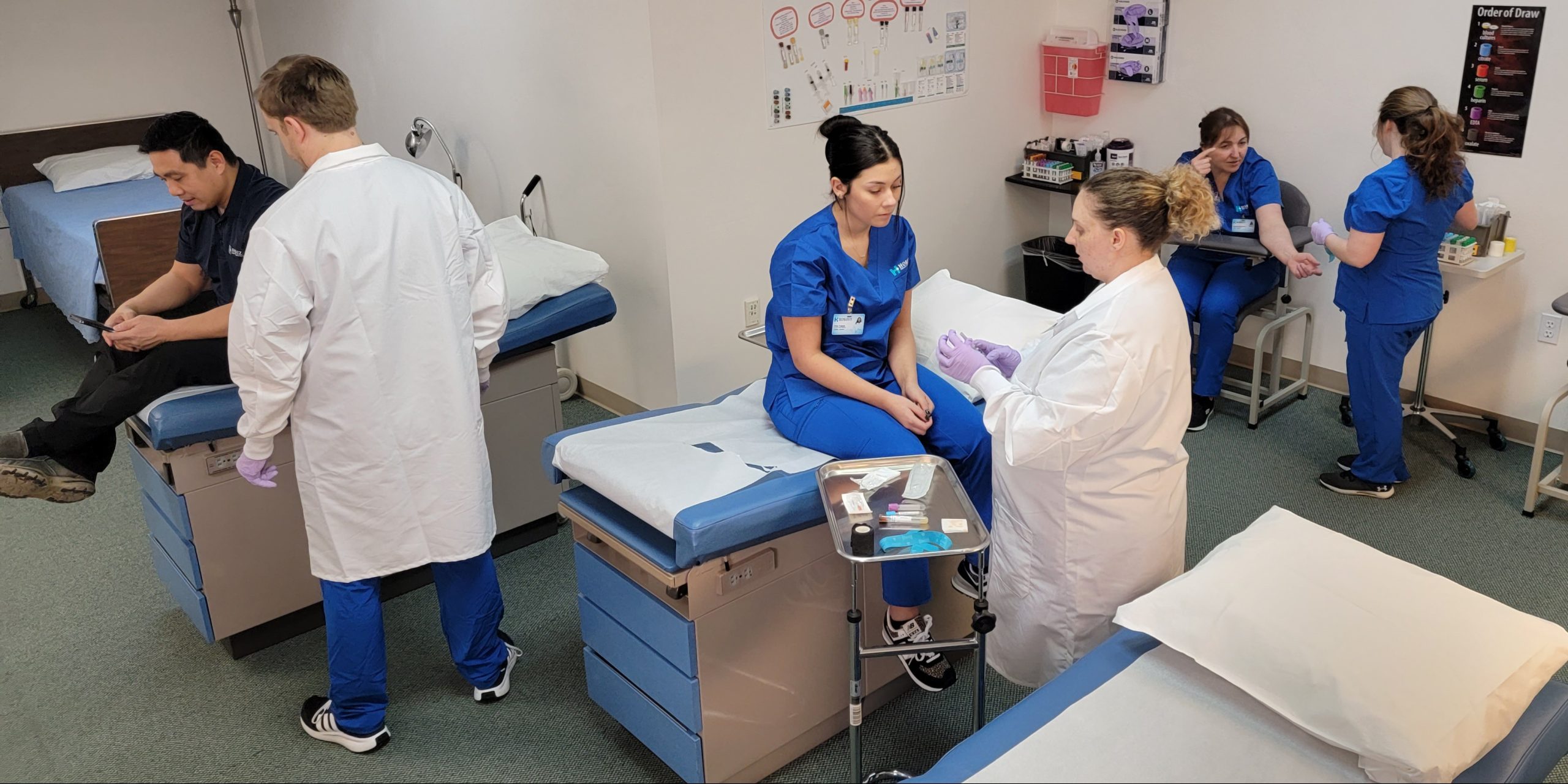Join Northeast Medical Institute CNA Classes Stamford: Increase Your Nursing Profession
Join Northeast Medical Institute CNA Classes Stamford: Increase Your Nursing Profession
Blog Article
Critical Factors to Take Into Consideration When Selecting one of the most Ideal Medical School Educational Program for You
Picking one of the most suitable clinical college curriculum is a pivotal choice that can substantially affect your academic trip and future career path. As aspiring doctor, the selection of curriculum should line up with your individual discovering style and job ambitions. However, past these first factors to consider, different critical variables come into play when making this choice. By exploring the nuances of training techniques, curriculum flexibility, and professional direct exposure opportunities, an extra detailed understanding of what makes an educational program suitable for you emerges. Allow's explore these crucial elements that can shape your clinical education and learning and eventually, your specialist trajectory.
Personal Learning Design

Medical institutions that offer diverse training approaches and sources can fit different finding out styles, cultivating a vibrant and inclusive educational setting. Inevitably, recognizing personal understanding preferences equips students to make educated decisions regarding their medical education, setting a strong foundation for their future jobs in health care.
Profession Purposes Alignment

Additionally, lining up career goals with the clinical college curriculum can additionally enhance inspiration and engagement throughout the educational trip. When students see the direct importance of their coursework to their future occupation, they are most likely to stay concentrated and dedicated to their studies. For that reason, when choosing a medical institution curriculum, it is essential to thoroughly take into consideration exactly how well it lines up with one's occupation objectives to make certain an effective and fulfilling professional path.
Teaching Methodologies
Considering the placement of job goals with the chosen medical college curriculum, an exam of the mentor methodologies used becomes essential in shaping the discovering experience. The effectiveness of a medical college curriculum heavily depends on the mentor approaches made use of by the institution. Different mentor methods, such as talks, tiny team conversations, problem-based understanding, simulation-based training, and hands-on clinical experience, can substantially influence how well trainees retain and realize information.
Lectures are a typical yet still generally used technique for delivering material to a big group of pupils efficiently. Small group conversations her response foster cooperation, critical thinking, and communication skills amongst pupils. Problem-based understanding urges active engagement, self-directed knowing, and analytical capacities. Simulation-based training permits students to practice professional skills in a controlled environment before engaging with real clients. Hands-on medical experience uses a firsthand understanding of client care and clinical techniques.
When choosing a medical institution educational program, striving trainees must take into consideration the teaching techniques used to make sure that their discovering choices and toughness straighten with the educational method of the institution.
Curriculum Versatility
When examining clinical college programs, assessing the level of educational program adaptability is vital for potential trainees seeking a customized academic experience. Curriculum flexibility refers to the degree to which pupils can individualize their learning paths within the clinical college curriculum. A curriculum that supplies flexibility enables trainees to seek their interests, concentrate on locations where they need extra assistance, and participate in finding out experiences that straighten with their occupation goals.

Prospective clinical students ought to take into consideration how a clinical school's curriculum adaptability aligns with their knowing choices, career desires, and personal goals. By picking a program that offers the right equilibrium of framework and flexibility, trainees can maximize their instructional experience and prepare themselves for effective careers in medication.
Scientific Direct Exposure Opportunities
Checking out the practical application of clinical knowledge, medical direct exposure possibilities play a crucial function fit a thorough clinical education and learning. These possibilities offer pupils with very useful hands-on experience in genuine healthcare settings, enabling them to link the void in between concept and method. When taking into consideration clinical institution curricula, the top quality and quantity of clinical direct exposure should be very carefully reviewed.
Reliable professional exposure must offer a varied variety of experiences throughout various specialties, guaranteeing that trainees are subjected to different medical circumstances and client demographics. Direct exposure to outpatient clinics, inpatient wards, surgical movie theaters, and emergency departments can assist trainees develop an all-around understanding happiness course yale of various facets of health care distribution. Additionally, chances for community-based care and interactions with underserved populaces can foster a deeper appreciation for the social factors of wellness.
Furthermore, the presence of supportive professors and mentors throughout these scientific experiences can significantly boost the learning process. Professors advice and useful feedback can help students assess their clinical encounters, recognize locations for renovation, and improve their medical skills and Click This Link decision-making capacities (Northeast Medical Institute CNA Classes Near me Stamford). In general, durable clinical direct exposure possibilities are essential for preparing future medical professionals to deliver high quality person treatment efficiently
Final Thought
To conclude, when selecting a clinical college curriculum, it is important to consider your individual understanding design, positioning with job purposes, showing methods, educational program flexibility, and clinical direct exposure chances. These elements play a critical duty in figuring out the most ideal program for your instructional and expert growth. Ensure to completely review each aspect to make an educated choice that will best support your growth in the clinical field.
Understanding one's individual knowing design is critical when choosing a clinical school curriculum. By determining one's discovering design early on, striving clinical students can purposefully pick a curriculum that caters to their staminas, inevitably boosting their knowing experience and scholastic success.
When evaluating medical college programs, evaluating the degree of educational program flexibility is crucial for possible students seeking a customized educational experience. Educational program versatility refers to the level to which students can personalize their understanding paths within the medical college curriculum.In final thought, when picking a clinical school curriculum, it is necessary to consider your individual knowing style, positioning with profession purposes, educating methodologies, curriculum flexibility, and medical exposure opportunities.
Report this page